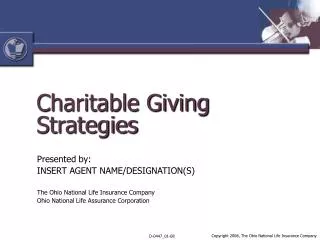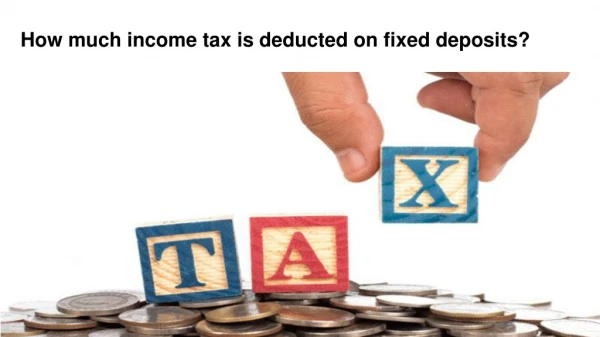How much income tax is deducted on fixed deposits?
Fixed Deposits are known to be the safest investment option courtesy of its guaranteed and steady returns feature. But one thing that makes it a little unattractive is the fact that its returns are not exempted from income tax deductions. The interest income is taxable and added to your total income under the head "Income from Other Sources" which is then taxed as per your tax bracket. Therefore, the interest is taxed at the same rate as your gross income and can vary from 0% to 30%. But, interest income of Rs. 40,000 and Rs. 50,000 for senior citizens is exempt from the income tax deduction. Hence, no TDS is deducted by the bank. The bank deducts TDS from interest income at a rate of 10%. And, if the PAN details are not provided to the bank, the TDS rate goes up to 20% on the interest income. How Is Income Tax on FD Calculated? Calculating income tax on FD interest income is a very simple process in both the types of FDs. Non-Cumulative Fixed Deposit Non-cumulative FDs have periodical interest payouts (quarterly/half-yearly/yearly), and income tax can be calculated easily on the interest income received in the account. Since interest income is paid out at regular intervals. The principal amount remains the same, and the annual interest income can be calculated easily vis a vis income tax liability. You can then compare it with the TDS deducted by verifying Form 26AS and pay your tax difference accordingly, if any. Cumulative Fixed Deposit As interest on FD is compounded quarterly, income tax calculation under this option is bit complex. Banks happen to deduct TDS when the interest is due for deposit and is not calculated on an annual basis. Therefore, your TDS on interest income can spread across two financial years. For example, consider that you have an FD account that you opened on 15th July. For this account, the due date for the deposition of the interest will be on 15th July next year, and TDS will also be deducted on the same day, and not at the end of the financial year. Here, you can see that the interest income is spread across two financial years, which makes things a little complex. However, by using au00a0fixed deposit calculator, you can determine the FD status of each financial year. It will help you calculate the interest income and your total tax liability. When to Pay Tax on Interest Income? If your tax liability of interest income is more than the TDS deducted by the bank, then you need to pay it by the end of the financial year, i.e., 31st March by means of advance tax/self-assessment tax. If your overall tax liability is lower than the TDS deducted, then you can file for a refund during filing of income tax returns. How to Prevent TDS on Fixed Deposit? If your total income happens to be Rs 2.5 lakh or below (Rs. 3 Lakh for senior citizens), including interest income, then you can use Form 15G/15H. This will ensure that your bank does not deduct TDS as you don't fall under taxable slabs. Is Interest Income from Tax Saving FD Taxable? Yes, the interest earned is taxable as per your income tax bracket. Under this scheme, the investor has only the benefit of tax deductions under Sec 80C. The tax saving FD rates are similar to any regular FD of 5-years duration and have a lock-in period of five years. Content Source- https://ev-club.org/how-much-income-tax-is-deducted-on-fixed-deposits/
★
★
★
★
★
97 views • 6 slides


